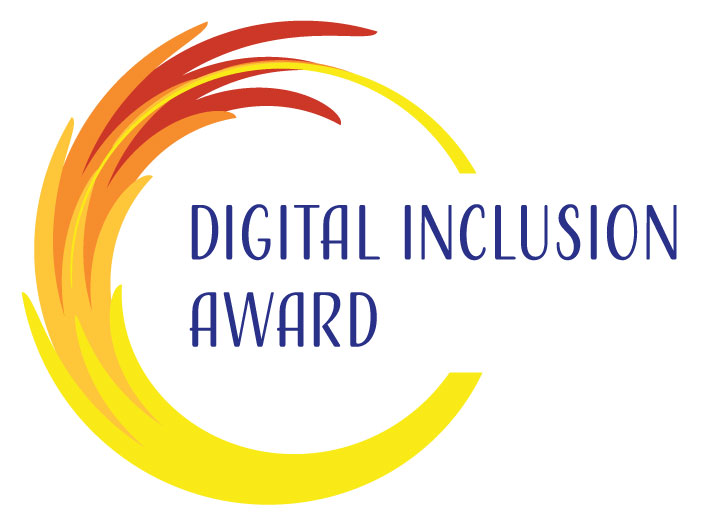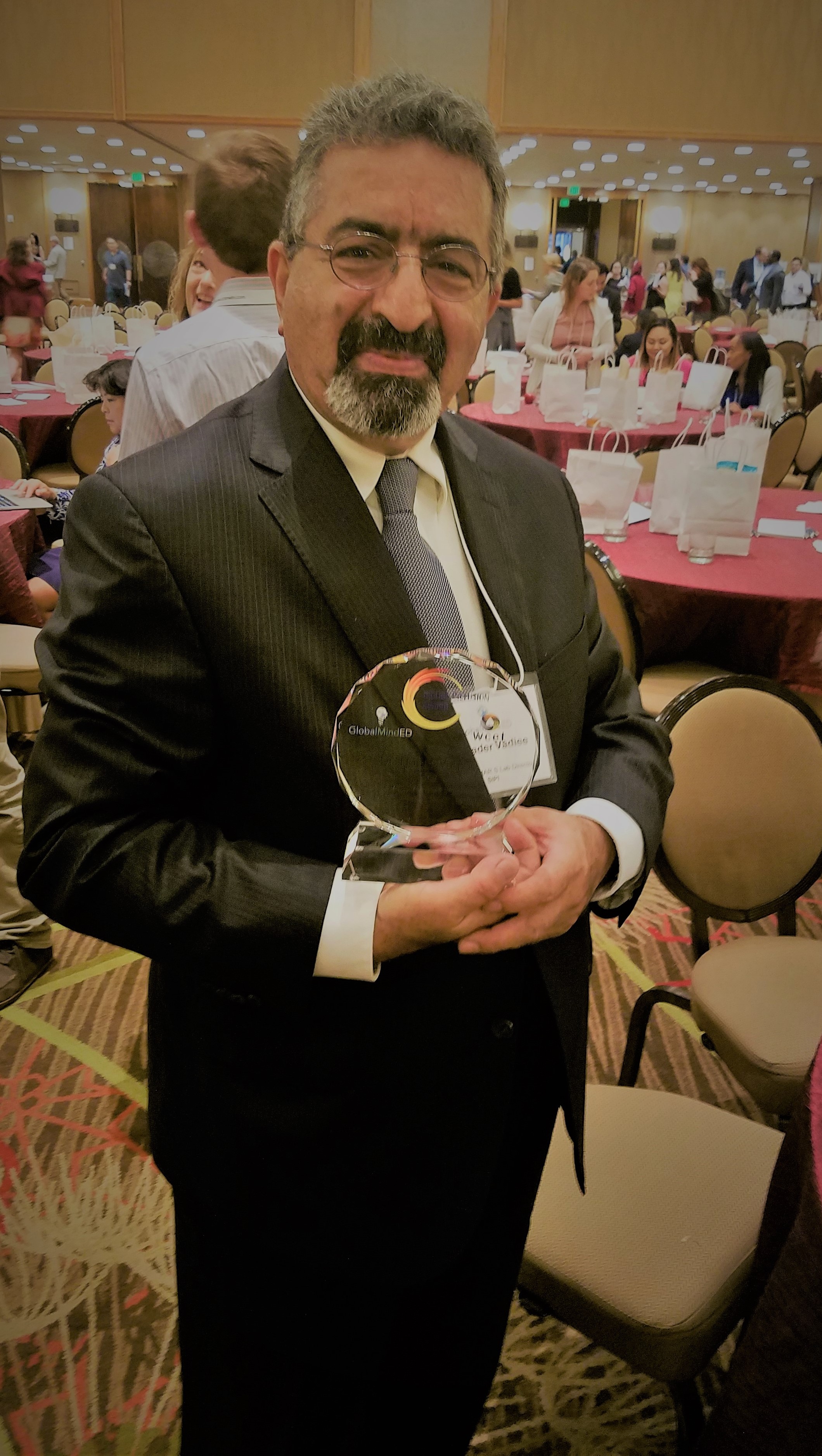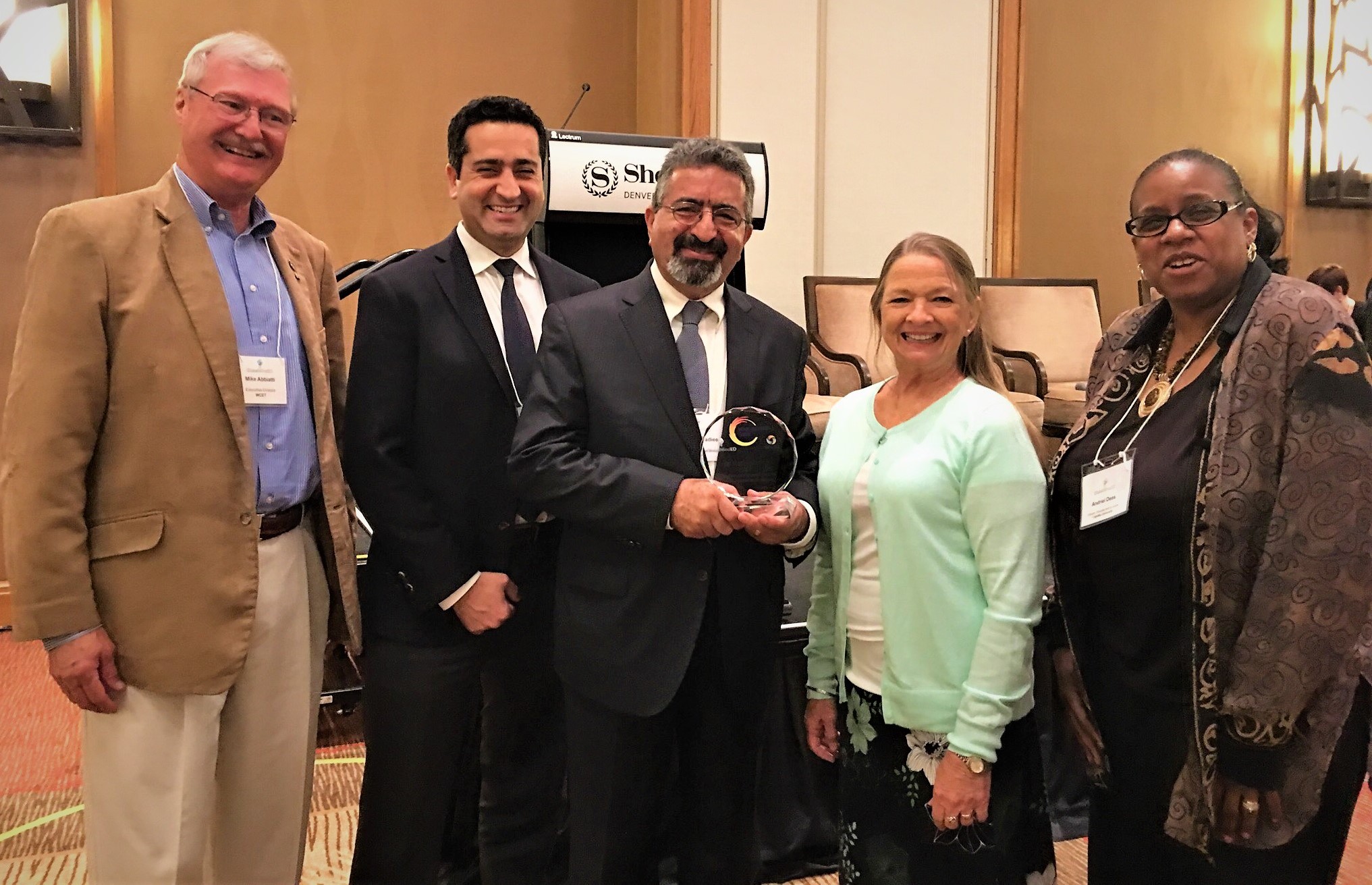Digital Inclusion – Moving Towards Opportunity for All
Published by: WCET | 6/28/2017
Tags: Student Success, WCET
Published by: WCET | 6/28/2017
Tags: Student Success, WCET
Hello WCET,
Last week, I had the pleasure of attending the GlobalMindED conference in Denver, CO to help with the presentation of the first ever Digital Inclusion award. We co-sponsored this award with GlobalMindED.  All of the nominees are working toward increasing student success by promoting digital inclusion. The winner of this year’s award has had a career focused on helping first generation and under-represented students, and the projects he is currently working on are seeing significant results.
All of the nominees are working toward increasing student success by promoting digital inclusion. The winner of this year’s award has had a career focused on helping first generation and under-represented students, and the projects he is currently working on are seeing significant results.
This week on WCET Frontiers, we are excited to welcome Andriel Dees, Director, Diversity and Inclusion from Capella University, and one of our Digital Inclusion award judges, to review the award and tell you more about our winner. Thank you Andriel!
Enjoy the read,
~Lindsey Downs
Last week, WCET partnered with the organization GlobalMindED to present the inaugural Digital Inclusion Award. This award was created through a strong interest in recognizing organizations or individuals that exemplify the meaning of the following principles of digital inclusion:
While all three of these principles were personified with this year’s inaugural winner, the first principle of leveraging mindware and encouraging collaborative use of digital resources will be highlighted here.

This year’s Digital Inclusion winner was Nader Vadiee, PhD., professor at the Southwestern Indian Polytechnic Institute. Dr. Vadiee ’s work promotes digital inclusion by advancing the interests of Native American and Hispanic students in Information Technology and Science, Technology, Engineering, and Math (STEM) fields.
Dr. Vadiee and his associates developed an immersive robotics program to provide an enriching learning experience to interest students in STEM Fields.
As a result, the program received a significant increase in enrollment and completion in STEM or IT courses. The Southwestern Indian Polytechnic Institute also experienced a significant increase in graduation rates in their Pre-Engineering Associate degrees, followed by continuation at the university level.
What is so exciting about this work is the fact that Dr. Vadiee and his team have purposely brought innovation to a community that continuously gets overlooked for possible economic prosperity.

The Native American population is not underrepresented, but unrepresented in the STEM fields. Although they make up 1.2 % of the total population, Native American/Alaska Natives represented only 0.4% of all engineering bachelor degree recipients, 0.3% of the engineering workforce, and 0.1% of all engineering faculty (NACME 2015 report).
Southwestern Indian Polytechnic Institute (SIPI) has been featured throughout the state of New Mexico for its Intelligent Cooperative Multi-Agent Robotic System (I-C-MARS) project.
SIPI, home to one of the largest tribal college engineering programs in the United States, received funding from the NASA Tribal College and University Experiential Learning Opportunity (TCU-ELO) grant to allow students to work with rovers in a simulated Martian environment called a Mars yard and to expose Native American students to more science and math courses.
Click below to view a PBS Segment on the I-C-MARS Project:
[youtube https://www.youtube.com/watch?v=dI87SDhibPA&w=560&h=315]
As a result of Dr. Vadiee and his team’s efforts, this past spring, 12 of his students won 1st place and the Grand Prize at the NASA Swarmathon Challenge. These students competed against 20 other colleges with far more resources and came away with a prize.
Bringing technology opportunities to communities that otherwise would have limited access is the focal point of the concept of digital inclusion. Again, congratulations to Dr. Vadiee and the Southwestern Indian Polytechnic Institute for all of the wonderful work you do to increase the number of Native Americans in STEM!

Stay tuned for the next blog which will focus on the second principle of connections to a larger communications ecosystem. I’ll be chatting with two pioneers within the area of cybersecurity and technology access to underserved communities.

Andriel Dees
Director, Diversity and Inclusion
Capella University
